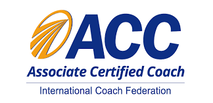Frequently Asked Questions
What is the focus of coaching?The coaching relationship values exploration and often results in breakthroughs. This supportive framework is designed to unleash the client's creative potential and personal resources. Coaching can be helpful in determining life direction, understanding one's design, upping personal performance, taking one's business to the next level, becoming more organized, boosting relationships, and more. The topic of coaching is up to each individual client. If a person is feeling stuck or looking to grow and improve, coaching can be the catalyst that unlocks the desired change.
What is the difference between coaching and consulting?Consultants are brought in to assess the situation and give advice based out of their personal experience. Coaches, on the other hand, are never considered the "expert" in the conversation but rather intentionally withhold their own advice in order to assist clients in coming up with their own solutions – which are often the strongest. This approach to overcoming barriers increases ownership, and research indicates that such self-persuasion often leads to long-term change.
What distinguishes coaching from counseling?Coaching and therapy are two distinct practices, though they may look similar from the outside (a certified professional in private conversation with a client). Consider this analogy to make clear the main difference. Hiring a counselor is like hiring a physical therapist – you do so when you are looking to get back on your feet following an injury of some sort. Hiring a coach, on the other hand, is like hiring a personal trainer – you're already healthy enough to enter the gym, but you're looking for some help to take your skills to the next level.
What is the coach's approach?Coaches are co-partners with clients – equal participants in the process, though it's the client's interests that are the sole focus of the relationship. The coach remains objective, accepting, and non-judgemental, giving room to fail or fly. That said, the coach continually pulls for the client to succeed, believing the best about him/her, and becoming a cheerleader in the client's life.
What characterizes the coaching relationship?Trust is a defining characteristic of the coaching partnership. Together, coach and client create an honest, supportive, and safe environment in which discovery, growth, and change can take place.
Who sets the coaching agenda?As the expert on his/her own life, the client sets the coaching agenda. Each coaching relationship is therefore unique, being aimed toward that client's desired outcomes.
What types of clients has Paige worked with?Paige has successfully worked with small business owners, entrepreneurs, leaders, teams, empty nesters, educators, musicians, writers, students, and people in transition.
|
Do I need to live in Waco to do coaching?No! Paige regularly offers coaching via web video conferencing (Skype, Zoom, etc.) for your convenience.
Is Paige available to train our team or speak at our event?Yes, Paige enjoys working with businesses, non-profits, churches, and student groups. Custom trainings can be arranged on topics of communication, leadership, and much more. See Workshops & Webinars for information.
What outcomes can I expect from coaching?Increased self-awareness and understanding are among the expected outcomes of the coaching relationship. The coach champions the client in finding new paths and trying new behaviors. The client's unique skills, interests, values, and strengths are highlighted and affirmed. This process often leads to heightened success and goal achievement.
How much does coaching cost?Paige's per session rate is $125. See the Rates & Packages for more details and options.
Are payment plans available?Yes! Contact Paige to arrange a payment plan that works for you.
Are coaching packages customizable?Yes – coaching is never meant to be a one-size-fits-all. Contact Paige with your specific inquiry.
How often do we meet?The most common meeting frequency is every other week; this tends to give clients the time they need to do the important work of accomplishing small action steps between sessions, while still being frequent enough to keep momentum. Some clients prefer to meet weekly if they have a looming deadline or want to jump start their progress.
Will I have homework between sessions?Homework is never assigned to the client. That said, each session concludes with clients determining action steps they wish to take. The type of actions, as well as the timeline for completing those actions, is entirely up to the client.
How long should I plan to work with a coach?The answer to this question is different for everyone. The most common approach is to begin with a 3-month (6-session) commitment and to add on sessions from there if desired.
Is coaching confidential?Yes, all coaching conversations are strictly confidential.
|





